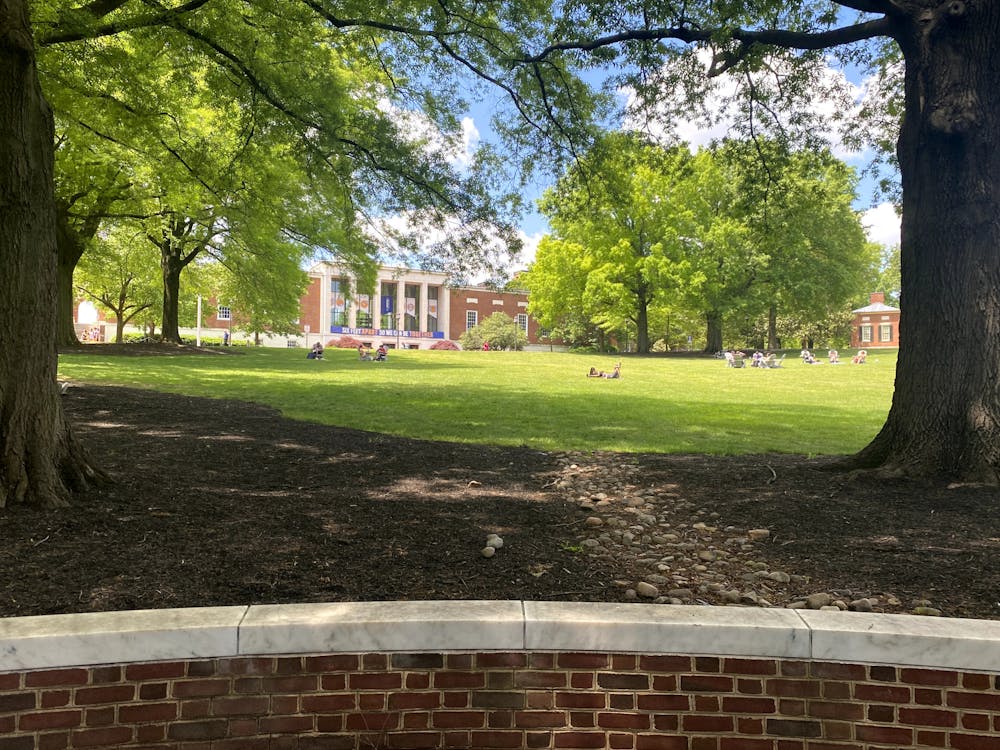This semester, the University has allowed the resumption of certain large in-person lecture classes, some with over 100 people, despite enhanced COVID-19 policies due to the Omicron variant.
In an interview with The News-Letter, Applied Mathematics and Statistics Senior Lecturer Mario Micheli explained that in the fall semester, classes of over 50 had to be held online and classes of 49 or below had the option to be taught in person.
Micheli reflected on why he chose to teach in person this semester.
“I really feel uncomfortable when I teach online to ask my students to turn on their camera,” he said. “I see their bed with their stuffed animals... I feel like I’m intruding on their private life. If I don’t ask them to turn on their cameras, it’s way harder to engage with them.”
Micheli also noted that there was a larger standard deviation in his assessment results last semester. Prior to COVID-19, he claimed the usual standard deviation was 12 or 13 points out of 100, whereas last semester it could go up to 20.
He attributed this to the larger psychological demand of online learning that can lead to mental health struggles. He feels in-person learning can help students realize they can thrive in an academic environment and, as a result, has positive mental impacts.
Freshman Anita Chetty echoed Micheli’s statement, saying that she is able to actively engage with the material of her lectures this semester as she finds it easier to be involved in discussions and ask her professors questions.
However, she also expressed that transitioning to in-person learning at the beginning of the semester felt rushed, given that Omicron-related concerns were high.
“It can cause a lot of confusion of whether Hopkins is doing the right thing as an institution to promote education but also promote personal well-being,” Chetty said.
In an email to The News-Letter, Vice President for Communications Andrew Green maintained that there had been no documented cases of COVID-19 transmission in classrooms since in-person classes began in spring 2021, which led to the decision to allow large lectures to be held in-person.
Green wrote that the University’s decisions to approve large events are dependent on the nature of the activity and the proposed space it will occur in, as well as the degree of certainty that the proper COVID-19 precautions will be taken. He emphasized that in-person lectures go through the same process of approval.
Sunita Thyagarajan, a senior lecturer for Introductory Chemistry II, cited the history of learning in how she views transitioning back to in-person teaching.
“In the big picture, based on studies, being in class and surrounded by your peers in an environment where the focus is on the course, you maximize your learning capability,” she said. “I think it's definitely the way to go in terms of learning, or that's what has been the tradition all these years. It has worked for a reason.”
Alsoph H. Corwin Professor of Chemistry Craig Townsend, who has been at Hopkins for over 40 years, discussed the significant changes he has noticed in students’ ability to engage with difficult material in online courses.
He noted that despite the University’s best efforts to move learning back into the classroom after two years of online education, Organic Chemistry classes are still conducted remotely.
“I offer the opinion that this just doesn’t work,” he said. “Students are not engaged in the same way that if they were going to class.”
Townsend observed that he received the worst course reviews he ever had in his career as a professor this past semester. He attributed this in part to the fact that students did not engage with his teaching style and course material meaningfully in a virtual modality.
Christopher Falzone, another Organic Chemistry professor who has been at Hopkins for around 15 years, echoed Townsend’s sentiments about students struggling to perform well in online courses.
“Students are somewhat damaged by this isolation and virtual classes,” he said. “I tried to go light with these kids in the fall because they’re just trying to get through college, and they’ve just had this experience that no one else has had before. Suddenly you’re ripped out of the classroom, and you’re having to go sit in front of a computer... [students] haven’t retained much since first semester.”
Sophomore Aalia Crouch, who takes Falzone’s Organic Chemistry course, expressed an opposing view about in-person lectures. She revealed that when attending her classes that are in person, she sometimes wishes she were able to pause the lecture if it’s moving faster than she expected.
Crouch highlighted that it may be because she has become accustomed to managing her own learning over the last few years. She also questioned how the University makes rules surrounding in-person events.
“In the end, I don't really know how they're deciding what's acceptable and what's not because there aren't any clear guidelines. I think that's the bottom line,” she said. “When it comes to gatherings or opportunities to meet people outside of class, they make that very hard to happen.”





